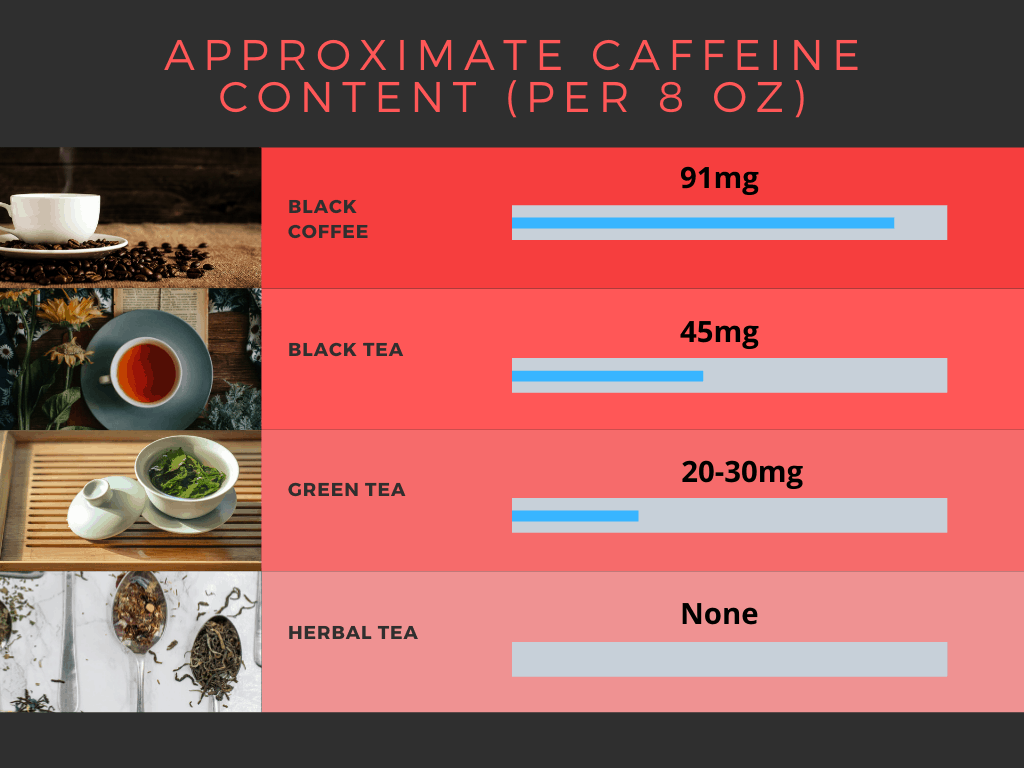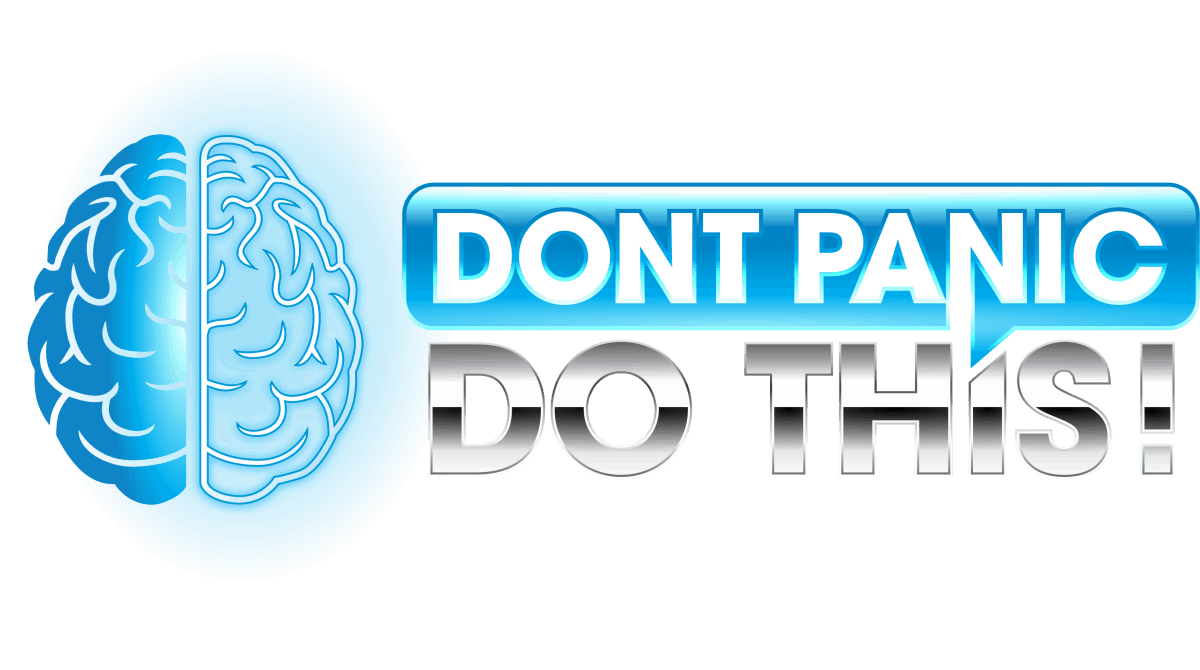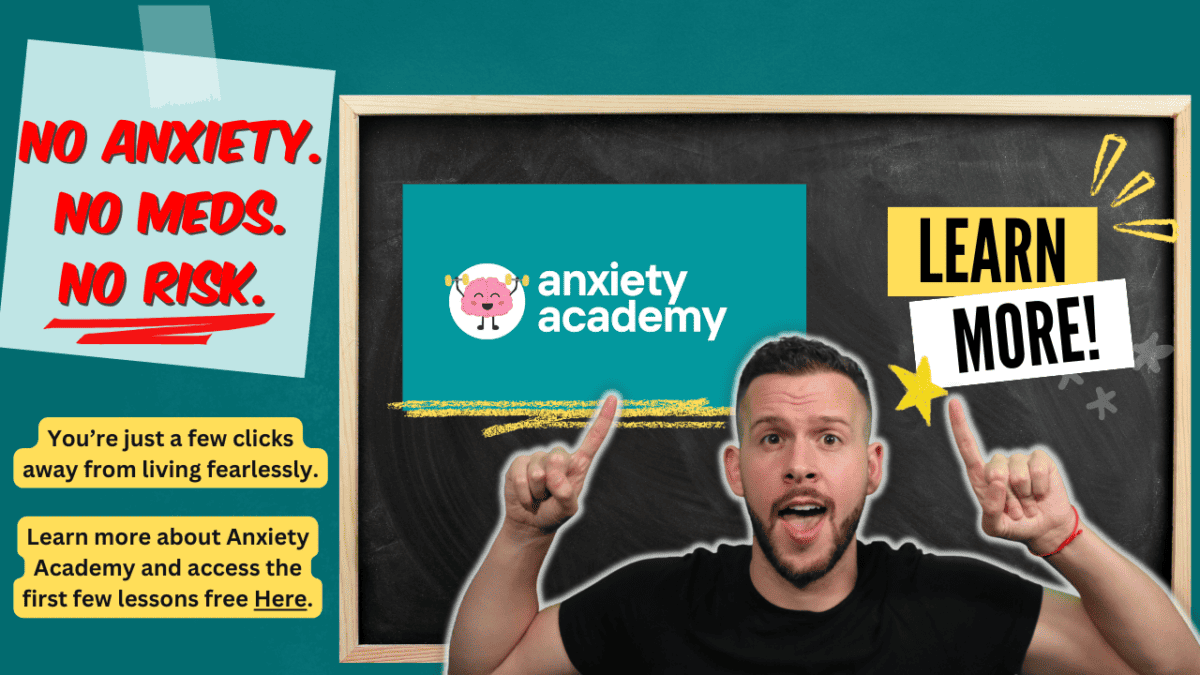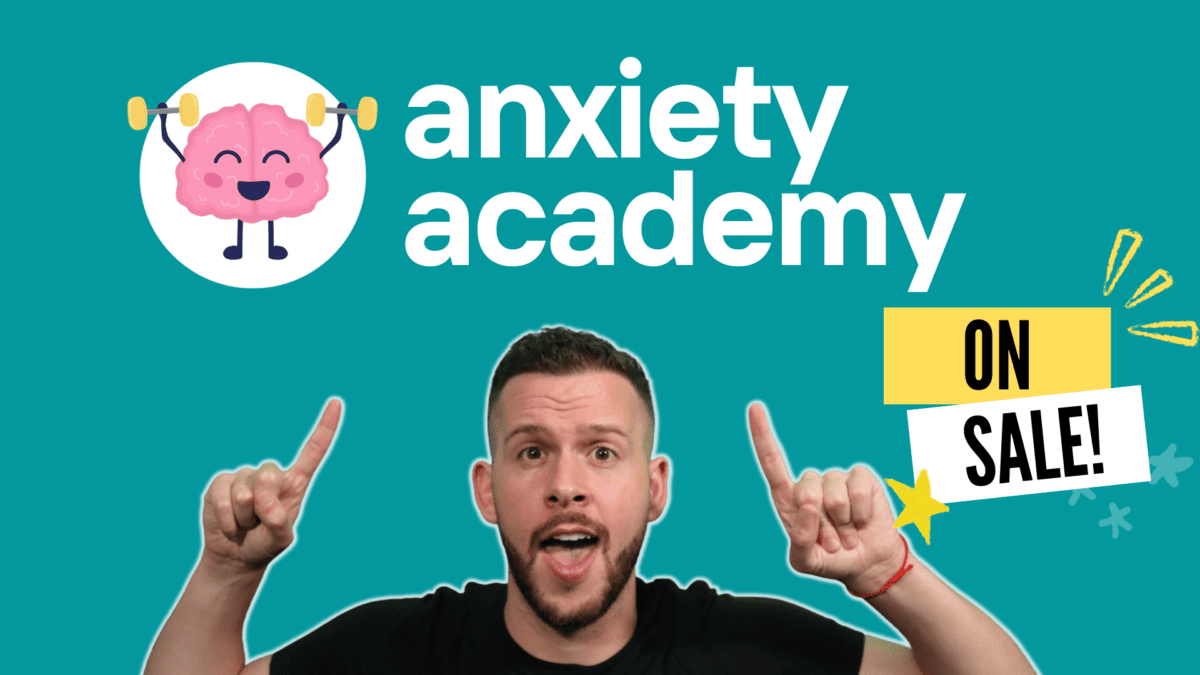When dealing with panic attacks and anxiety, people tend to forget the role that diet plays on our mental health. The foods we choose to eat serve as fuel not just for our body, but for our brain as well. This fact led me to explore the question… What is the best way to diet for anxiety?
The best diet for anxiety is one that is well-balanced and able to provide adequate amounts of all necessary nutrients and vitamins. Diets high in B-complex vitamins, magnesium, calcium, zinc, omega-3 fatty acids, and probiotics are ideal. A Mediterranean diet is often recommended as being a well-balanced diet for anxiety.
When adjusting your diet for anxiety, it’s important to know not only what foods you should eat, but also what foods you should avoid. Keep reading and I’ll explain some of the sneakier foods that have caused me anxiety over the years, as well as the foods that have helped me to feel less anxious than ever before.
The role your diet could be playing in your anxiety may surprise you!
Diet for Anxiety Reduction – The Basics
Learning what foods to eat and how to diet for anxiety is critical for anyone hoping to decrease anxiety or panic attacks. With that said, please speak to your doctor before making any significant changes to your diet.
Different Specializations = Different Answers
It’s always a good idea to seek professional help when learning how to manage anxiety. The only problem is that, oftentimes, just one professional may not be enough. Professionals in the medical and mental health fields are great, but cannot be expected to know everything. Likely, they will specialize in a specific field, and favor that field when planning your anxiety treatment.
A psychotherapist, a psychiatrist, and a nutritionist may each have very different approaches to treating anxiety. Each of these individuals will have unique knowledge and insights that the others may not. My main point here is that it is always a possibility that your anxiety is being caused by something simple; something that your chosen professional may not specialize in.
One major example of this is the effect of diet on anxiety.
You would not want to be prescribed powerful anti-anxiety medications by a psychiatrist if the root cause of your anxiety is a vitamin deficiency; this would be like putting a bandage on a leaky pipe. Most mental health issues are best treated without medication when medication can be avoided.
In my personal opinion, nutrition should always be examined before resorting to medication.
This is why one of the first steps I recommend for preventing anxiety is to find yourself a nutritionist who understands how to diet for anxiety, and how nutrition affects the brain. This is one of the safest and most conservative measures we can take to improve our mental health and reduce anxiety – with the added benefit of improving our physical health in the process!
If you can’t afford or access a nutritionist right away, no sweat! I’ve got plenty of experience under my belt from experimenting with my own diet for anxiety relief, and I’m glad to fill you in on what I’ve learned over the years!
But before we dive right into what you should be eating, let’s start even easier than that – let’s talk a little bit about some of the dietary habits and foods that you should be avoiding.
Dietary Habits and Foods that Cause Anxiety
Many unhealthy diet and lifestyle habits can bring about symptoms of anxiety. Some of these may cause you to feel temporary irregularity in breathing, heartbeat, or cognition, or even just give you the jitters. For those with anxiety disorders, the awareness of any such irregularities can be enough to escalate the symptoms, throwing you into a full-blown panic attack.
Being very sensitive to and aware of my own anxiety levels on a day-to-day basis, I’ve spent some time taking note of any foods that tend to “upset the balance.” Sure enough, there are certain dietary habits and foods that cause anxiety for me pretty consistently. By avoiding these things, I notice my baselines anxiety levels decrease significantly.
Here are some things to be mindful of as you diet for anxiety prevention:
Food Allergy Anxiety and Inflammation
Inflammation is a major and often overlooked source of anxiety for many people. Inflammation occurs when the body attempts to protect itself from illness, injury, or infection. In the brain, inflammation often occurs as a result of an allergic reaction.
As you plan your diet for anxiety, you should try and rule out any potential unknown food allergies that you may have. Common food allergies, such as dairy and gluten, should be tested for as soon as possible. Try going several weeks on a dairy-free or gluten-free diet to determine whether or not your anxiety symptoms have improved.
Additionally, you may wish to request that your doctor gives you blood testing for allergies. A full panel allergen test should help you to figure out what kinds of food you specifically should avoid. Some people may also be sensitive to foods high in glutamates, including MSG. This is something that you will have to experiment with under the supervision of your dietician, nutritionist, or doctor.
If it turns out you're sensitive to dairy (like me), you may benefit from replacing regular milk with nut milk. I personally like to go for almond milk. It may be worth comparing the best nut milk makers to save some money and make your own fresh at home.
Irregular Blood Sugar Levels
Hypoglycemic (low) blood sugar levels can cause you to feel anxious. When blood sugar drops too low, the body releases adrenaline into the bloodstream to prevent fainting. This in itself may cause a panic attack or anxiety.
Sugary foods may also impair the body’s ability to cope with stress. Additionally, they may cause symptoms that feel like anxiety, causing an anxious brain to panic and escalate the symptoms.
In my own experience, eating a large meal containing mostly unhealthy, sugary, ingredients (example: a frozen pizza, the main ingredient being enriched white flour) will later cause me to sit there feeling the symptoms of anxiety, despite not actually having any reason to be anxious.
It can be helpful to replace any sugary drinks such as juices or sodas with water or naturally flavored seltzer, etc. Anyone suffering from daily anxiety should avoid sugary or processed foods and consider being tested for diabetes. Eating healthy foods and not missing meals can help to prevent hypoglycemic states.
Alcohol Use
Alcohol is extremely popular among anxious people all over the world.
What anxious person doesn’t love a little extra attention paid to their GABA receptors?
Unfortunately, drinking alcohol for anxiety can be a bit of a double-edged sword.
In the short-term, alcohol does a pretty good job of decreasing anxiety. But when consumed in high amounts, alcohol can cause significant fluctuations in blood sugar levels, exacerbating symptoms of anxiety (I will also swear to anyone that I always have the worst nightmares after drinking IPAs. I know this sounds crazy, but I swear it’s true for me!).
Even worse is the “hangxiety” that follows a day or two after heavy drinking. GABA rebound in the brain, or alcohol withdrawals, can often leave us feeling much more anxious than before we drank in the first place. Even for casual alcohol users, if you are feeling a bit more anxious or irritable a day or two after drinking, you know what to blame.
Nicotine and Drug Use
For smokers, nicotine can have a similar effect on anxiety as drinking can. Once addicted, smoking may seem to decrease anxiety symptoms, but this is mainly due to its delaying your withdrawal. Ultimately, smoking causes a great deal of stress on the body, causing anxiety to worsen over time.
People with anxiety are better off kicking the habit of nicotine use, altogether.
Other drugs, of all varieties, should likewise be avoided as much as possible. The simple fact is that there is no such thing as a “free ride” when it comes to drugs. Your body, and brain, will always have to compensate for the chemical imbalance in some way. For most people, this usually means a night of chemical euphoria followed by a few miserable, anxious or depressed days afterward.
The takeaway for this is simple: Your relationship with nicotine or other drugs may have you convinced that it helps you with your anxiety; but, in all likelihood, it is likely making it much worse in the long-run. People with anxiety should probably avoid recreational drug use and nicotine use entirely.
Caffeine Intake
Much like alcohol and nicotine, caffeine is a habit-forming drug that many sufferers of anxiety become dependent on.
At face value, a stimulant like caffeine doesn’t sound like something an anxious person would enjoy. However, because of routines such as your “morning coffee” or “pre-workout drink,” many people become addicted to caffeine over time without realizing it.
Once addicted, we get withdrawals when we go too long without caffeine. The stress of these withdrawals often feels like and causes intense irritability and anxiety.
Because of its popularity, people often forget just how powerful caffeine addictions can be.
I quit drinking caffeine last year and the effect that withdrawing from caffeine had on my anxiety levels is something that has changed the way I will view caffeine for the rest of my life. I realized that my social anxiety immediately spikes without my morning caffeine hit, and then I had two nights of extremely uncomfortable heart palpitations (not to mention the headaches and general fatigue for a week or so).
The conclusion I came to from that little experiment was that, while I felt like caffeine was making me feel good… it only actually felt good because I was breaking my caffeine withdrawals with each cup of coffee. Now that I’ve been off caffeine for a year, I feel naturally energetic and far less anxious without ever needing to touch the stuff.
Something else important to note is that you may have an addiction to caffeine and not even be aware of it! Coffee, tea, energy drinks, pre-workout supplements, and sodas can all be major sources of caffeine. As a kid, I was drinking about 5 glasses of iced tea per day – never even realizing how much caffeine I was pumping into my body on a daily basis!

If you are serious about planning a diet for anxiety reduction, you may want to take a closer look at your caffeine intake. It’s definitely worth enduring the withdrawals and gradually cutting caffeine out of your day-to-day routine.
Once your body learns how to function without the caffeine, you should be able to get more restful sleep and naturally decrease your overall stress and anxiety levels.
Anti-Anxiety Food Solution
Generally speaking, foods that may reduce inflammation and provide adequate nutrition are often best for anxiety. When planning your diet for anxiety prevention, it’s especially important to determine whether or not you currently have any sort of vitamin or nutrient deficiencies in your current diet.
Some of the most important components to a good diet for anxiety reduction include:
- B Vitamins
- Magnesium
- Calcium
- Zinc
- Omega-3 Fatty Acids
Deficient levels of any of these can cause a great deal of stress on the body and brain. You may become more prone to symptoms such as irritability, fatigue, restlessness, anxiety, nervousness, confusion, palpitations, panic attacks, and more.
Even when it seems as though we are eating enough each day, we need to be mindful of what it is we are eating. Unhealthy processed foods that consist mostly of “empty calories,” including ingredients like enriched flour, are often nutrient-deficient; when too many nutrient-deficient foods make up the bulk of our diet, it’s easy to fill up each day without ever getting the vitamins our body really needs to flourish. Not to mention, such sugary processed foods tend to wreak havoc on our blood sugar levels.
To make sure you’re getting a nutrient-rich diet, it’s important to get enough fruits, vegetables, healthy fats, and lean meats in your diet. This alone can lead to a significant improvement in anxiety. If you have specific dietary restrictions, no worries – there are plenty of potential sources for virtually every nutrient.
One great diet for anxiety is the Mediterranean diet.
Mediterranean Diet for Anxiety
If your goal is dieting for anxiety reduction, following a Mediterranean diet is a good place to start. In fact, studies show that a Mediterranean diet is quite effective for decreasing both anxiety and depression for many people.
Best of all, the same studies suggest that you don’t even have to go too crazy following the diet precisely. You can still cheat a bit and enjoy some snacks or dessert; as long as most of your meals are based around the Mediterranean diet for anxiety, you could see some benefits.
In a Mediterranean diet, the focus is on eating mostly plant-based foods such as fruits, vegetables, whole grains, legumes, and nuts. You would also try and replace bad fats like butter with healthier alternatives such as olive oil or canola oil. Decreasing salt in favor of herbs and spices, and limiting your consumption of red meat are also aspects of a Mediterranean diet.
Not all diets are for everyone, so you should speak to your doctor before any radical changes, especially if you have other health issues or allergies.
There are many options for meals that follow a Mediterranean diet. My own culinary skills are quite limited, so I won’t try and teach you how to cook here, but I can recommend a book:
The Complete Mediterranean Cookbook – This is the highest rated cookbook on Amazon for meals that follow a Mediterranean diet. It includes over 500 recipes from a handful of Mediterranean countries, and it’s a great place to start if you’re looking for inspiration or instructions on cooking Mediterranean meals. I recommend the spiral-bound version over the digital version, but that's because I prefer physical cookbooks.
Whether you decide to follow a Mediterranean diet or not, let’s talk a bit about some of the anti-anxiety nutrients you should definitely be keeping an eye on.
Foods High in Zinc
Zinc deficiency may lead to anxiety and depression in some people. According to a study, low levels of zinc may cause lower levels of GABA and glutamate – lower GABA levels are associated with increased anxiety. The study also suggests that zinc supplementation may raise GABA levels for an anxiolytic, or anti-anxiety, effect.
Whole grains, shellfish, nuts, legumes, broccoli, and kale are a few great sources of zinc.
Foods High in Magnesium and Calcium
Magnesium and calcium supplements are normally taken together, because magnesium is needed for calcium absorption. Due to our modern diets, up to half of the population today is magnesium deficient.
Magnesium deficiency can be responsible for depression, anxiety, high blood pressure, and migraines. This study found that magnesium supplementation helped to decrease subjective anxiety levels in participants. Sufficiently dosed, magnesium could help to alleviate symptoms of anxiety and panic attacks.
Overall, magnesium and calcium are both known to promote good nervous system health. Magnesium is frequently used to help relax muscles and relieve tension, and may even help alleviate heart palpitations. In my personal experience, I believe that taking magnesium supplements for heart palpitations has helped me put a stop to my own palpitations.
Almonds, cashews, pumpkin seeds, spinach, chard, peanut butter, bananas, beans, and avocados are good foods to eat for more magnesium. Dairy products, green leafy vegetables, and soybeans are good sources of calcium.
Foods High in Vitamin B
Many experts suggest supplementing your diet with Vitamin B sources when planning a diet for anxiety reduction. While some may opt for Vitamin B supplements to obtain these nutrients, they can also be found in many foods.
There are 8 types of B Vitamins. A supplement that includes all 8 of these vitamins is typically referred to as a Vitamin B Complex. While all of the B Vitamins are important, some of them can play a major role in preventing feelings of anxiousness. A few of these include:
Vitamin B1 (Thiamine): Helps us to balance blood sugar levels (remember how we talked about the effect blood sugar spikes and drops can cause on our anxiousness?).
Vitamin B3 (Niacin): Helps our brain create serotonin; many individuals claim to feel reduced anxiety when supplementing with B3.
Vitamin B5 (Pantothenic Acid): Supports the adrenal glands; this is good for our overall stress and anxiety levels.
Vitamin B9 (Folate/Folic Acid): Required by the body for cell division and the creation of neurotransmitters. Folate can quickly be broken down and used as energy by the body. Folate deficiency is associated with symptoms of anxiety, depression and irritability.
All of these are worth talking about with your doctor, but for most healthy people a B vitamin complex supplement should suffice. Whole grains, meat, eggs, dairy, legumes, almonds, sunflower seeds, broccoli, spinach, avocados, bananas, and citrus fruits are all excellent sources of B vitamins.
Foods High in Omega-3 Fatty Acids
Recent studies suggest that Omega-3 fatty acids can have a significant effect on improving anxiety symptoms. Although, it could take anywhere from 6 weeks to 6 months for Omega-3s to build up in your system so that you can see benefits to your mood.
Wild-caught salmon, chia seeds, walnuts, soybeans, and olive oil are all good sources of Omega-3 fatty acids.
Probiotic-Rich Foods
Probiotic-rich foods such as fermented foods or those with cultured milk may help to alleviate anxiety. These kinds of foods include yogurt or kefir – as long as they include live active probiotic cultures, they should be able to help.
The reason for this lies in the gut-brain connection.
Probiotic foods such as yogurt help to maintain a healthy environment in the gut. A healthy gut helps contribute to a healthy brain. In fact, the gut-brain connection is so strong, the gut is often referred to as our “second brain”. Because of this, yogurt or other probiotic-rich food sources can lead to a healthier brain and lower anxiety levels.
As a side note, anytime I eat something that upsets my stomach, I usually feel slightly more anxious, overall. This is just a minor detail you may want to consider when choosing your diet and how it affects your own anxiety levels.
Other Anti-Anxiety Diet Tricks
Foods Containing Theanine
Chamomile and green tea are known to greatly help with decreasing anxiety. I quit caffeine entirely and now opt for this tea that helps me feel less anxious. But, if you’re not willing to kick caffeine entirely – green tea is a fantastic compromise, as it contains a good deal of theanine (also known as l-theanine). Studies like this consistently show that theanine helps to decrease stress and promote anxiety.
Turmeric
Turmeric is a spice known to decrease inflammation in the body. Turmeric is well-known for its beneficial effects on the brain and body and can help to reduce anxiety in many people.
Blueberries
Blueberries are an excellent source of vitamin C and antioxidants. Both of these properties help to protect the cells in the body and ultimately may help to reduce anxiety.
Hydration
While easily overlooked, dehydration often comes along with symptoms that imitate anxiety.
Some of these symptoms include rapid breathing, rapid heart rate, dizziness, fainting, etc. Any of these symptoms can be mistaken for anxiety. These symptoms may also scare someone with anxiety into worsening symptoms, bringing on a panic attack.
Take a closer look at your hydration habits. If you aren’t already drinking 6-8 glasses of water per day, it may be time to start drinking more water.
Multi-Vitamins
All this nutrition information can be tough to process and keep track of. If you can stick to a Mediterranean diet and get all the nutrition you need from your meals, that’s awesome! But I totally realize that this isn’t always feasible for everyone. If you don’t feel like you’re getting the complete nutrition you need, you can always supplement your diet with multivitamins. At various points in my life (namely college) my diet was terrible; taking a daily men’s multivitamin absolutely helped me to feel healthier and less anxious. Taking a proper multivitamin for your sex and age group may benefit you as well.
Recommended Books
- The Complete Mediterranean Cookbook: I mentioned this one earlier but just want to suggest it again. This is a great way to dive into cooking healthier, anxiety-friendly meals. The recipes are all right there, so no excuses!
- The Anti-Anxiety Diet: I did my best with this article, but like I said before… I’m no nutritionist! A book like this is highly recommended for anyone who really wants to dive deeper and get the best understanding possible of how to diet for anxiety relief and stress reduction.


